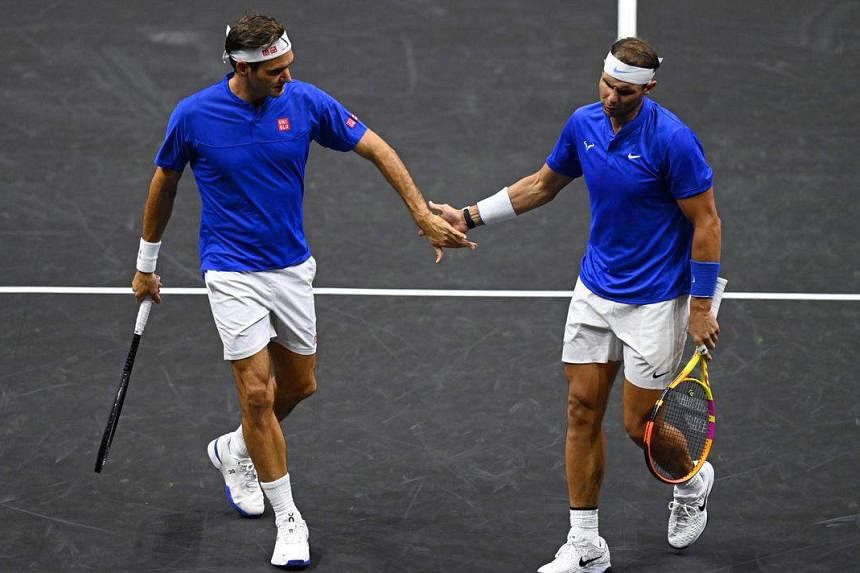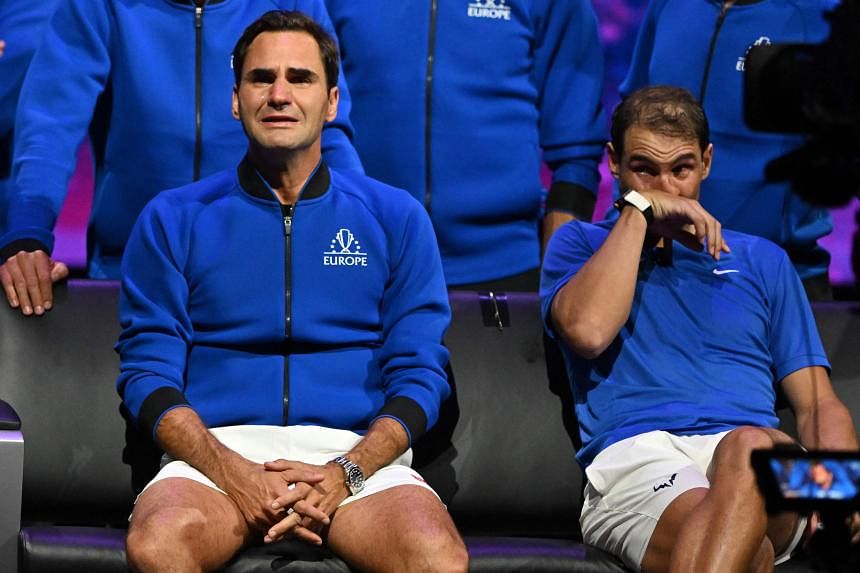A goal, a quote, a record, a race. A comeback, a failure, a feat, a goodbye. Every year we take a little piece of sport with us to carry forever. The brain is like a bookshelf at home, short of space as it creaks under the weight of stories. So from the blur of images we pick a moment which is personal and meaningful.
From 2022, maybe you picked Eileen Gu’s last jump to win freestyle skiing’s big air gold at the Winter Olympics or pole vaulter Mondo Duplantis’ exploration of space. Perhaps it was that coach diving in to save the life of an unconscious artistic swimmer or Katie Ledecky slashing her 1,500m short-course world record and leaving her second-placed rival 40 seconds behind.
Maybe you’ll never forget Christian Eriksen, who suffered a cardiac arrest last summer and then, 287 days later, scored for Denmark with his first touch on his return this March. Perhaps you swooned over Lionel Messi giving Croatia’s Josko Gvardiol a 12-second tutorial on creative control, a piece of choreography that someone on social media has splendidly set to classical music.
But me, I’ll take the picture of the two old, crying guys on the bench in London.
Eighteen years of trying to ruin each other ended with a bull of a Spaniard weeping at a Swiss’ tearful farewell. No, this I’d never seen before. Maybe never will.
These professors of tennis, Roger and Rafa, as we were reminded that Laver Cup night again, gave a sport a worth beyond forehands. They understood a competitor is also a colleague and appreciated that the value you give your rival makes your victory over him more meaningful.
In a year of figure skaters caught in a drug scandal, the monotonous ka-ching of LIV golf, controversy over Kyrie Irving’s alleged anti-Semitic views, the vaccine-visa-vanity of Novak Djokovic, the smears about cheating in chess, these weeping pensioners brought another dimension to sport. Down history’s avenue they chased each other ferociously, but almost never let desperation force them into a disrespectful turn.
We like edginess in sport, we’re fine with some swearing, we relish the adrenaline of shirt tugging and our ears perk up at the first sound of animosity. But it’s also as if we’re conditioned for a rivalry to be rude and testy, like Max Verstappen telling a newspaper that “people have told me that he (Lewis Hamilton) doesn’t use my name”.
But maybe sport goes too far too often, where club rivalries become caricatures with all their battle idioms and hype flies out of control. Nick Kyrgios has turned disrespect into an art form and athletes become brands who talk scripted nonsense. Not these old guys. They’re holding hands, for God’s sakes.
Among the hardest things in sport is balance, especially when over-zealous support crews try to get one player to undermine the other. In the book The Rivals, tennis player Chris Evert says of Nancy Lieberman, one of Martina Navratilova’s coaches, “what bothered me was Nancy made it personal, not just about tennis. She thought Martina would play better if she hated me”.
Evert-Navartilova played 80 times and are still friends and Lin Dan and Lee Chong Wei’s badminton rivalry didn’t mute their regard for each other. But it’s testing and as Larry Bird, whose relationship with Magic Johnson was all ruthless respect, once told NPR News: “I always thought you had to keep the edge... You don’t want to get too close to a person because you will get a little soft.”
This is the tightrope Rafa and Roger walked and the picture tells you they kept that fine and tricky balance. Somehow it seemed appropriate that their final on-court picture was not of victory over each other. That would be far too prosaic for men who for long had offered us the profound.

It was a picture which said it was OK for men to weep and for emotion to be openly expressed. Like their tennis, there was nothing half-hearted to it. It was a picture of goodbyes and with it an understanding that as one man left the other man was somehow incomplete. Perhaps they knew that, outside family, it is possible nothing will be as fulfilling to them for the rest of their lives. They had given more than their best to each other, they had given their youth.
It was a picture which tells us that fairy-tale endings, despite what we think, are about more than winning. Sport is a better place than that. Tennis was their life and yet it is eventually only a game. And how much they understood and embodied that is evident in their reactions. On a small-minded planet these were men, right till the end, who saw the big picture.


